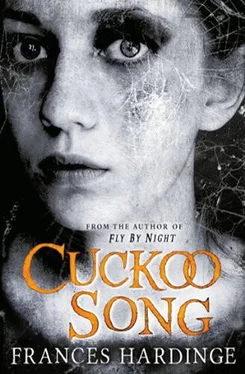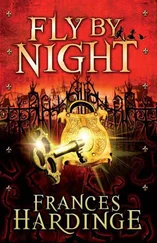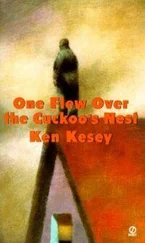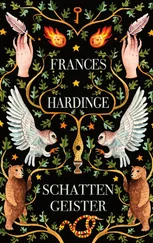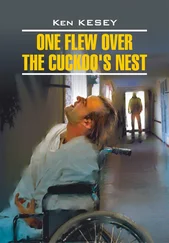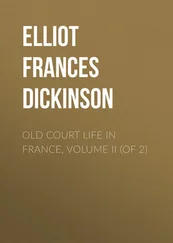Frances Hardinge - Cuckoo Song
Здесь есть возможность читать онлайн «Frances Hardinge - Cuckoo Song» весь текст электронной книги совершенно бесплатно (целиком полную версию без сокращений). В некоторых случаях можно слушать аудио, скачать через торрент в формате fb2 и присутствует краткое содержание. Жанр: sf_etc, ya, на английском языке. Описание произведения, (предисловие) а так же отзывы посетителей доступны на портале библиотеки ЛибКат.
- Название:Cuckoo Song
- Автор:
- Жанр:
- Год:неизвестен
- ISBN:нет данных
- Рейтинг книги:4 / 5. Голосов: 1
-
Избранное:Добавить в избранное
- Отзывы:
-
Ваша оценка:
- 80
- 1
- 2
- 3
- 4
- 5
Cuckoo Song: краткое содержание, описание и аннотация
Предлагаем к чтению аннотацию, описание, краткое содержание или предисловие (зависит от того, что написал сам автор книги «Cuckoo Song»). Если вы не нашли необходимую информацию о книге — напишите в комментариях, мы постараемся отыскать её.
Cuckoo Song — читать онлайн бесплатно полную книгу (весь текст) целиком
Ниже представлен текст книги, разбитый по страницам. Система сохранения места последней прочитанной страницы, позволяет с удобством читать онлайн бесплатно книгу «Cuckoo Song», без необходимости каждый раз заново искать на чём Вы остановились. Поставьте закладку, и сможете в любой момент перейти на страницу, на которой закончили чтение.
Интервал:
Закладка:
I hate you, Pen , Triss murmured silently, as she turned left, down the hill, keeping the smaller girl’s figure in sight. I hate you.
At last Pen halted before a curious building which had been built on a hairpin bend and was therefore wedge-shaped. High above, under a row of light bulbs, was a sign painted with the words ‘The Slice of Life’. The walls were cream-coloured, increasing the resemblance to a piece of cake. They were covered with posters, on which Theda Bara offered a sultry glare, John Barrymore showed off his famous nose, and Rudolph Valentino fiercely clutched a young woman who did not seem to mind too much.
It was a cinema, a strange little cinema that Triss could not remember ever having seen or heard mentioned. As she was wondering at this, Pen walked up the front steps and in through the glass swing-door.
Triss halted in the street, irresolute. Could this be the answer? Had Pen really fled the house on an illicit film-going trip? Now that she thought about it, Saturday afternoon was the time that most cinemas held their ‘tuppenny rush’ showing, with cheap tickets for children.
Her eye slid to a board near the door. Sure enough, it advertised a Children’s Matinee. The main picture was Murder at the Midnight Casino , and the serial was something called The Unseen Blade . Both sounded exactly to Pen’s taste. Pen was addicted to gangster films, and any other picture that involved people shooting each other or falling off cliffs.
With severe misgivings, Triss walked up the steps and into the cinema.
The Crescent family’s cinema trips had always been to the Rhapsody, on the edge of town. It was large and grand like an Egyptian palace, full of reds and golds, with a piano that rose up on a special platform just before the film began. Mother had always insisted that the other cinemas were ‘bug huts’, where one ‘was jostled by all sorts and came home with fleas’.
The entrance was close to the ‘point’ of the cinema’s wedge, so Triss was unsurprised to find that the foyer was very small.
It was a strange mixture of old and new, grand and dingy. The carpet was bright red and had the raspy, exciting feeling of nylon, but the dark paint of the walls was peeling. Behind a battered desk sat a pretty young woman with a mouth painted like a cherry and white-gold hair that looked like whipped cream.
There was no sign of Pen. Behind the women was a doorway with a velvet rope across it, from beyond which Triss could hear a cacophony of voices.
Triss’s mouth dried as the woman gave her a special warm ‘for children’ smile.
‘Don’t look so worried!’ she said in a confidential tone. ‘It’s just beginning. If you sneak in now, you’ll catch the start of the serial.’ She said the word ‘sneak’ with a small, charming wrinkle of her nose. ‘That’s three ha’pennies for the stalls, thruppence for the gallery.’ She paused and seemed to take stock of Triss’s clothes. ‘You’ll be for the gallery, won’t you?’
Triss floundered for an instant, before remembering that she had a purse with a little of her pocket money in her coat pocket. She hesitated, then fished out three pennies, received a metal token in return and headed through the door behind the desk. From the gallery she would have a much better view of the auditorium, and a good chance of spotting Pen.
She passed through a door labelled ‘To the Gallery’, pausing to hand her token to a silent, sallow-faced attendant, then climbed a set of stairs, the sound of ruckus ahead growing ever louder.
She emerged on to the gallery, which appeared to be empty. The auditorium below, however, was seething. The hard wooden benches were crammed with children of every age, from heartily screaming infants to teenage girls who sat gossiping and peeling potatoes at the back. Children threw nutshells, or stood on benches to yell across to each other. Others stamped their feet and whistled, calling for the film to start. Peering down, Triss tried to make out Pen’s diminutive shape among them, but in vain.
As Triss watched, a woman with her hair in a stern bun walked down the aisles, spraying something into the air above the children’s heads. All of them seemed to accept this as a matter of course. A chemical scent of lavender drifted up to Triss and she wondered if the woman was spraying for fleas.
When a solitary man sat down at the piano and began to thump out a tune, the audience erupted with excitement. The room darkened, and the silvery screen began to move in its magical way, showing the latest news events. Mr Baldwin, the prime minister, was talking silently in a big coat, the silver sunlight making him blink.
Then the serial episode began, showing a young woman trapped in a cellar rapidly filling with water. Most of the audience had clearly been following this story avidly and were soon shouting warnings to her by name, or calling out the titles on the screen for friends hard of reading. As the heroine made her unlikely and ingenious escape, there were cheers, gasps, laughter and catcalls.
On another day, Triss would have been drawn in as well, the shimmer of the great screen filling her with an almost unbearable excitement. Today, however, she was too busy scanning the figures below bathed in the screen’s flickering light, searching in vain for Pen.
Could Pen have paid thruppence for a seat upstairs? There was a large central pillar blocking Triss’s view of the other half of the gallery. She sidled along the row of seats, and gingerly peered round the pillar.
In a seat at the far end of the gallery sat Pen.
The smaller girl was fidgeting and seemed to be paying no attention to the screen at all. Over and over again she glanced to her left, towards the wall directly opposite Triss. There was nothing there though, only a darkened wall painted a rich, deep red.
And then, quite suddenly, there was.
A small, open door had appeared in the wall, offering a rectangle of faint illumination. As Triss watched, Pen saw it and stiffened, then rose stealthily, made her way down the row of seats and vanished through it.
There was something about that dimly lit doorway that sent Triss’s instincts twitching. She could smell something. No, taste something. No, neither of those, but there was something in the air that furred her tongue and made her teeth tingle. It was strange. It was familiar. It made her think of the Grimmer. She did not want to follow Pen into that mysterious half-light.
But she knew she would.
The serial had yielded to a cartoon. Boggle-eyed, Felix the Cat crept past a sleeping dog, his shoulders hunched, each step an exaggerated lurch. As his adventures bathed the auditorium in a storm-flicker light, Triss crept on silent feet towards the waiting door.
Chapter 11. THE ARCHITECT
As Triss approached the mysterious doorway, the sounds of joyful uproar in the auditorium seemed to dull. The roar of voices became foggy, the piano music muted to a tinny chiming like distant cowbells. Beyond the doorway lay a narrow corridor running from left to right, carpeted in a drab earthy grey, and with patterned wallpaper of the same colour on the walls.
Triss gingerly leaned in to peer. To the left, the corridor led to a set of stairs leading downward. To the right it ended at a distant white-painted door, before which stood Pen. As Triss watched, Pen knocked. A moment or two later, the door was opened, and the younger girl vanished within.
The carpet crunched strangely under Triss’s feet as she advanced down the corridor, soft but prickly, delicate but fibrous. The wallpaper looked a lot like velvet with some of its pile shaved to create patterns. When she put out her hand to touch it, however, she found her fingertips stroking feathers. As she brushed the wall, a tiny tremor seemed to flutter through the pattern, as though the wall was a living thing and had stirred its plumage.
Читать дальшеИнтервал:
Закладка:
Похожие книги на «Cuckoo Song»
Представляем Вашему вниманию похожие книги на «Cuckoo Song» списком для выбора. Мы отобрали схожую по названию и смыслу литературу в надежде предоставить читателям больше вариантов отыскать новые, интересные, ещё непрочитанные произведения.
Обсуждение, отзывы о книге «Cuckoo Song» и просто собственные мнения читателей. Оставьте ваши комментарии, напишите, что Вы думаете о произведении, его смысле или главных героях. Укажите что конкретно понравилось, а что нет, и почему Вы так считаете.
